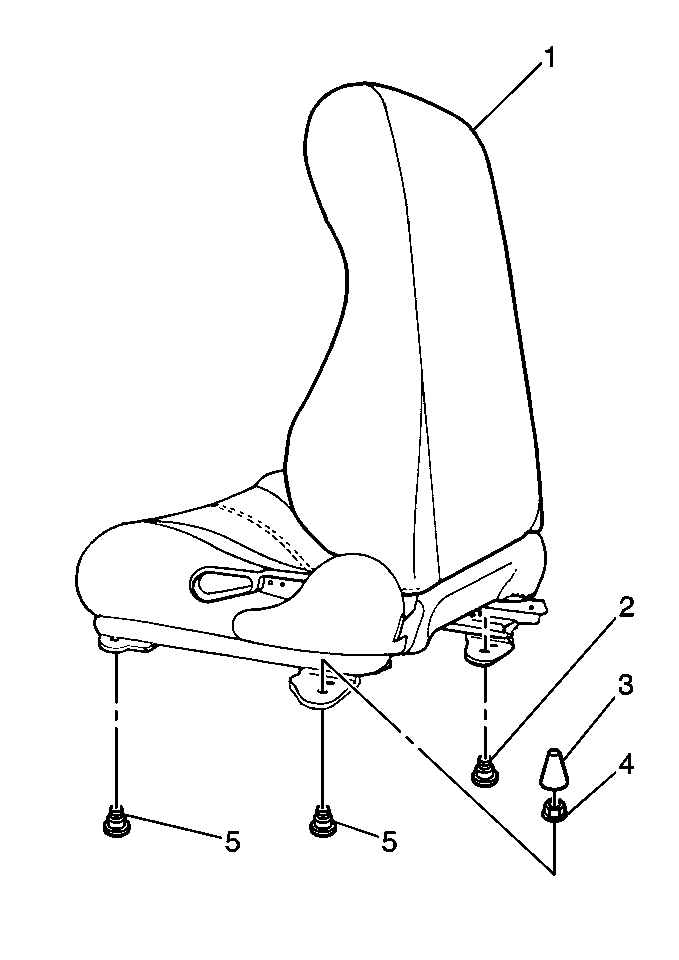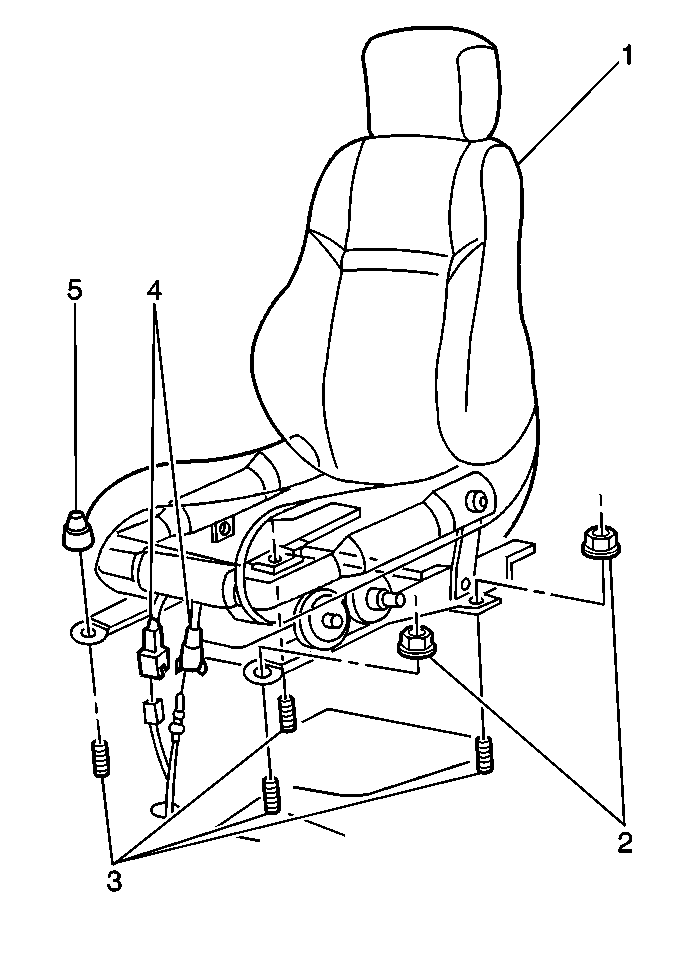Front Seat Replacement - Bucket Manual
Removal Procedure
- Place a protective tape over the nearby trim and paint.
- Remove the caps (3) from seat adjuster nuts (4).
- Remove the seat adjuster nuts (4) from the studs (2, 5).
- Disconnect the seat belt wiring harness electrical connector, as required.
- Remove the front bucket seat (1) from the vehicle.

Installation Procedure
- Install the front bucket seat (1) on to the studs (2, 5) in the vehicle.
- Install the seat adjuster nuts (4) to the studs (2, 5).
- Connect the seat belt wiring harness electrical connector, if required.
- Install the caps (3) to the nuts (4).
- Remove the protective tape from the nearby trim and paint.

Notice: Use the correct fastener in the correct location. Replacement fasteners must be the correct part number for that application. Fasteners requiring replacement or fasteners requiring the use of thread locking compound or sealant are identified in the service procedure. Do not use paints, lubricants, or corrosion inhibitors on fasteners or fastener joint surfaces unless specified. These coatings affect fastener torque and joint clamping force and may damage the fastener. Use the correct tightening sequence and specifications when installing fasteners in order to avoid damage to parts and systems.
Tighten
Tighten the seat adjuster nuts to 50 N·m (37 lb ft).
Front Seat Replacement - Bucket Power
Removal Procedure
- Place a protective tape over the nearby trim and paint.
- Remove the caps (5) from the seat adjuster nuts (2).
- Remove the seat adjuster nuts (2) from the studs (3) .
- Disconnect the seat belt wiring harness electrical connector (4), if required.
- Disconnect the front bucket seat air supply hose (4), if required.
- Remove the front bucket seat (1) from the vehicle.

Installation Procedure
- Install the front bucket seat (1) on to the studs (3) in the vehicle.
- Install the seat adjuster nuts to the studs.
- Connect the seat belt wiring harness electrical connector (4), if required.
- Connect the seat air supply hose (4), if required.
- Install the caps (5) to the nuts (2).
- Remove the protective tape from the nearby trim and paint.

Notice: Use the correct fastener in the correct location. Replacement fasteners must be the correct part number for that application. Fasteners requiring replacement or fasteners requiring the use of thread locking compound or sealant are identified in the service procedure. Do not use paints, lubricants, or corrosion inhibitors on fasteners or fastener joint surfaces unless specified. These coatings affect fastener torque and joint clamping force and may damage the fastener. Use the correct tightening sequence and specifications when installing fasteners in order to avoid damage to parts and systems.
Tighten
Tighten the seat adjuster nuts to 50 N·m (37 lb ft).
